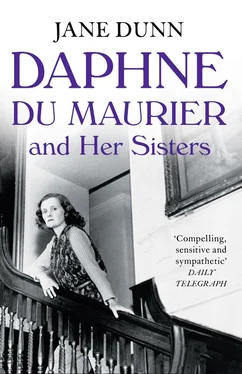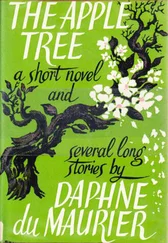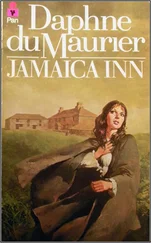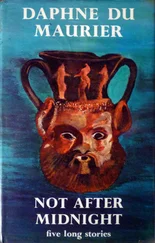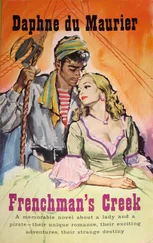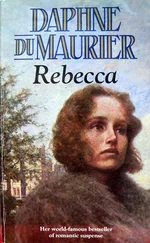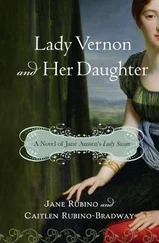He was a demanding and devoted father and, given his emotional nature and love of fun and practical jokes, became the shining sun in his young daughters’ universe. He was a regular in their nursery, ready to play games with them, read stories and preside over mock trials when squabbles broke out between his daughters. More than once he brought J. M. Barrie up to the nursery where the du Maurier girls, without any self-consciousness, acted out for him the whole of Peter Pan : Daphne as Peter, Angela as Wendy and Mrs Darling, and when necessary a pirate or two, while Jeanne was Michael and any other part as necessary. Gerald slipped into his old blood-curdling role of Hook. The girls would slither as mermaids on the floor and fly from chair to chair, thrillingly immersed in their own fantasy of Neverland. In fact for years Angela liked to believe that the lights in Regent’s Park were fairy lights, ‘like those in the last scene of Peter Pan ’. 18
All three sisters pretended to be characters other than themselves throughout their childhood. It seemed that everyone they knew did the same. Histrionics were a way of life. It was not just Angela who screamed she was being murdered if the nurse got soap in her eyes when washing her hair. With Gerald, emotions were magnified; from the anchoritic groans of a man in despair he could become the clown in the nursery or a capriciously domineering Hook. Amongst the children, Daphne was already in thrall to her imagination and became the main mover in the sisters’ dramatic reconstructions of history (executions and torture were popular) or action scenes from books of adventure and derring-do.
Daphne insisted on playing the hero, only deigning to be a girl if the character was warlike and heroic, like Joan of Arc. Angela was happy enough for a while to play the female roles, even though they often ended in tears or death. She remembered the lure of The Three Musketeers , with herself as the responsible, elder Athos. Daphne of course was the upstart outsider d’Artagnan, their natural leader, and ‘poor Jeanne becoming Aramis’. 19The older girls didn’t rate the amorous, ambitious Aramis so left him to their little sister who would not complain. No one wanted to be Porthos, whose good-natured gullibility made him too dull to be heroic.
Although Angela recalled being blissfully happy up to the age of eight, in Daphne’s memory her childhood lacked even a few years of uncontaminated happiness. From early on she stood out in the family as the beauty but also as the difficult one. Angela was gregarious and outgoing and in her own estimation was a highly nervous child, but never shy. Manners were everything. The correct appearance of things mattered to the family, and shyness was considered by their parents to be extremely bad manners. Angela could converse with the adults and sweep impressive curtseys when required, but Daphne was not sociable and charming in the way that privileged Edwardian children were expected to be. Already brave and individual, in society Daphne was introverted and shy. When introduced to grown-ups, she was more likely to scowl than simper, and escape to the nursery and her own private world as soon as she could.
Being singled out in the family by her father as his favourite was a perilous honour Daphne was ill-equipped to receive. It was perhaps a major reason for the lack of sympathy between herself and her mother, ‘someone who looked at me with a sort of disapproving irritation, a queer unexplained hostility’. Daphne insisted that from the age of two, when memories began, she had never once been held by her mother or sat on her lap and that this sense of thwarted longing and alienation turned her inwards. ‘I became tongue-tied with shyness, and absolutely shut in myself, a dreamer of dreams.’ 20It changed the way she viewed the world. She grew watchful and wary, aware always of an uneasy exile. ‘You could never be quite sure of any of them, even relations.’ 21
She recognised Gerald behind his many dramatic personae, but she was disconcerted by Muriel, fearful that her role as mother was just a façade and that she was really the Snow Queen in disguise. If those closest to you appear unpredictable and powerful, as beings possessed of knives, where as a child can you feel safe? This sense of domestic menace fuelled her extraordinarily fertile imagination, expressed all her life in macabre stories and dreams. Where Angela was wide-eyed and believed anything, Daphne took nothing on trust. Extreme wariness and diffidence followed her into adult life, perhaps magnified by her sensitive apprehension as a child that beneath her mother’s lovely exterior existed something deadly to her emerging self. Even in middle age, when she was no longer afraid of a mother who had grown frail and grateful, Daphne’s anxieties found outlet in cinematic nightmares about her, ‘in which my anger against her is so fearful that I nearly kill her!’ 22
There was a cool steely quality behind Muriel’s delicate beauty and this contrast was confusing. She seemed so compliant with Gerald’s extravagances, so ready to act the perfect wife and mother, but even Angela, her responsible eldest and ever eager to please, did not elicit much sympathy from an impatient Muriel who took it upon herself to teach her eldest to read when small and reduced her to tears every time. Despite the apparent self-sacrifice of herself and her career, Muriel was considered by some of her daughters’ friends to be charming, but selfish. Like many of her generation born towards the end of Queen Victoria’s reign she was a snob and very keen that her daughters mixed in the right circles. The girls understood the code of the du Mauriers, as Angela recalled:
blatantly the upper classes and lower classes were alluded to, but the middle class, to which lots of us belonged and we belong, was never mentioned by us! We probably kidded ourselves that we were of the first category, and I squirm when I remember how my darling mother would talk with a sniff about ‘that class’ when speaking of some servant or other. 23
The highlight of the year for the young du Maurier sisters was the summer retreat to the country. Every May they were dispatched to a rented house with maids and a nurse and there they stayed until August, often without their parents who remained for some of the time in London, acting or dealing with the business of the theatre. Although their behaviour was still constrained by adults’ demands, their country surroundings offered a whole range of new experiences and freedoms denied them in town, where routines and lack of space stifled the spirit of childish adventure and freedom. One significant freedom was to be able to make a noise, to walk and talk without constraint, instead of creeping in silence around their London house in the mornings while their parents slept. Everything became slightly looser. The servants seemed more cheerful, the sisters squabbled less and Mummy did not wear a hat at lunch.
In the summer of 1913, when Angela was nine, Daphne six and Jeanne still only a toddler, the girls arrived at Slyfield Manor in Great Bookham in Surrey. Rented by their parents for the summer, this house impressed the elder sisters with its ancient mystery and the beauty of its surroundings. It was dark and creaky inside, a manor dating back to the Domesday Book, but the current building was largely Elizabethan: the great Queen was meant to have stayed a night here. Perhaps they learnt too of stories of the ghostly blue donkey that leapt the high gates at the bottom of the stairs (installed in an earlier age to keep fierce guard dogs at bay) to disappear into the gloom. Daphne was scared of walking these dark-panelled stairs alone, but the atmosphere of the place and the conjured presence of Elizabeth I stirred her imagination: ‘Where had they all gone, the people who lived at Slyfield once? And where was I then? Who was I now?’ 24
Читать дальше
